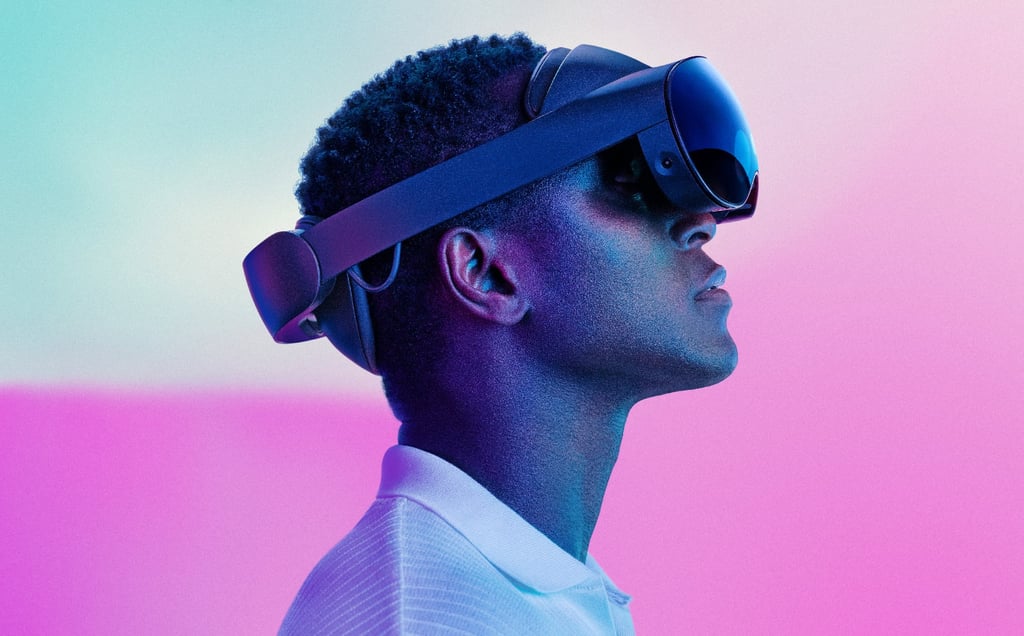Meta’s Big Move: What the La Jolla Cancellation Tells Us About the Future of AR and VR—and the Impact on AR Glasses
Meta’s decision to cancel its high-end La Jolla AR/VR headset marks a significant shift in the industry. Explore the implications for the future of premium AR/VR devices, AR glasses, and the broader landscape of mixed reality.
TECH NEWS
8/23/20243 min read


Meta’s Big Move: What the La Jolla Cancellation Tells Us About the Future of AR and VR—and the Impact on AR Glasses
When Meta recently announced that it was halting development on the high-end La Jolla AR/VR headset, it caught the attention of tech enthusiasts worldwide. For those of us deeply invested in the future of augmented and virtual reality, this decision feels like a crucial moment—one that could reshape the trajectory of the entire industry. But beyond just VR, what does this shift mean for AR glasses, and how should we interpret Meta’s strategic pivot?
The Ambitious Dream of La Jolla
Let’s start by understanding what La Jolla was supposed to represent. More than just another device, it was Meta’s bold attempt to compete with Apple’s Vision Pro in the premium mixed reality market. With advanced features like MicroOLED displays, La Jolla was positioned to be a flagship product in 2027. Enthusiasts were thrilled at the prospect of another high-end player in the AR/VR space, something that could potentially drive innovation and push the boundaries of what these technologies could achieve.
However, the challenges soon became apparent. The cost of developing such advanced technology was skyrocketing, making it nearly impossible to meet the sub-$1,000 price point that Meta had aimed for. Compounding this issue was the lukewarm reception of Apple’s $3,500 Vision Pro—if even Apple struggled to gain traction in the high-end market, what hope did Meta have? These challenges led Meta to rethink its strategy and ultimately cancel the La Jolla project.
Why Meta’s Shift Matters
Meta’s decision to back away from La Jolla isn’t just a financial decision; it reflects a broader assessment of the current AR/VR market. High-end devices, while technologically impressive, seem to be struggling to find a broad consumer base. The lukewarm reception to premium products suggests that most consumers aren’t ready—or willing—to invest heavily in these technologies yet.
For those of us who’ve been eagerly watching the AR and VR industries, this shift might feel disappointing. We were hoping for more competition and innovation at the high end, which could push the boundaries of what’s possible. But Meta’s new direction—focusing on more accessible, mid-range devices—might be a smarter move in the long run. After all, widespread adoption is more likely to come from products that are both affordable and user-friendly.
The Impact on AR Glasses: A Critical Turning Point
This shift also raises important questions about the future of AR glasses, a closely related but distinct segment of the broader mixed reality market. With Meta focusing on more accessible devices, what does this mean for the development and adoption of AR glasses? Are we moving towards a future where AR glasses are as common as smartphones, or will they remain niche products?
The AR glasses industry is at a critical turning point. Companies like Meta, Apple, and Google have been experimenting with different approaches, from Google Glass to the rumored Meta AR glasses. The cancellation of La Jolla might signal a broader trend—one where companies pivot away from ultra-premium devices to focus on creating AR glasses that are both practical and affordable.
For enthusiasts, this could be seen as a positive development. More accessible AR glasses could mean wider adoption, leading to a richer ecosystem of apps and services. However, it could also mean that the most advanced, cutting-edge features might be reserved for future iterations or more specialized devices.
The Future: Accessible, Not Exclusive
So, where does this leave the AR/VR industry as a whole? Meta isn’t stepping away from AR and VR technology—they’re recalibrating their approach. The rumored Ventura headset and the upcoming Quest 4, both of which promise to balance affordability with advanced features, are perfect examples of this new strategy.
For AR glasses, this shift could lead to more devices that are designed with the average consumer in mind. While the ultra-premium features of La Jolla might not be coming to market, we can expect to see more practical, accessible AR glasses that could eventually become mainstream. This is a critical development for the industry because it emphasizes usability and affordability over high-end specs—potentially the key to bringing AR glasses into everyday life.
The Discussion: What Does This Mean for AR/VR and AR Glasses Enthusiasts?
Let’s open up the discussion. How do you feel about Meta’s decision to cancel La Jolla? Are you disappointed that we won’t see another high-end competitor, or are you excited about the potential for more accessible AR/VR devices? And what about AR glasses—do you think this shift will help or hinder their development?
As we consider these questions, it’s clear that Meta’s move could reshape the future of AR/VR technology. Whether you’re a developer, an enthusiast, or someone curious about the direction of this technology, there’s a lot to think about—and discuss.
